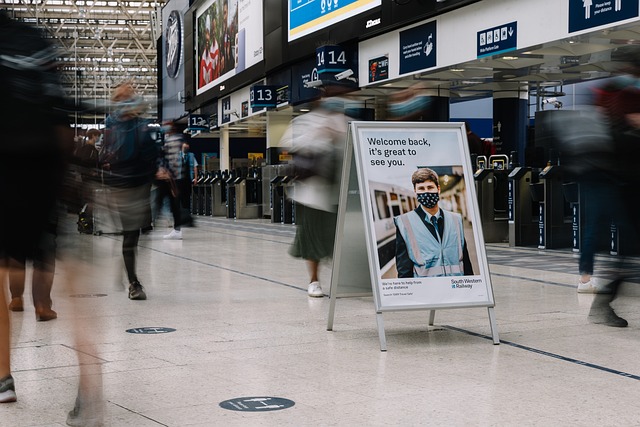AI behavioral retargeting is transforming residential real estate by personalizing virtual property tours for undecided buyers. Using machine learning algorithms, this technology tracks user behavior, enabling agents and developers to deliver tailored content and recommendations based on preferences and patterns. This strategy enhances engagement, increases conversion rates, and improves the overall experience in a competitive digital market. Success is measured through tracking conversion rates, user engagement metrics like session times and form submissions, and analyzing user behavior data to optimize future strategies.
In today’s digital age, the residential real estate market is undergoing a quiet revolution. AI behavioral retargeting plays a pivotal role in engaging undecided buyers, offering personalized experiences that cater to their unique preferences. This article explores how AI enhances virtual tours, providing insights into understanding buyer behavior and creating tailored content. By delving into these strategies, real estate professionals can effectively track success through conversion rates and user engagement, ultimately revolutionizing the way properties are experienced and sold.
- Understanding AI Behavioral Retargeting for Residential Real Estate
- Enhancing Virtual Tours with Personalized Buyer Experiences
- Measuring Success: Tracking Conversion Rates and User Engagement
Understanding AI Behavioral Retargeting for Residential Real Estate

In the realm of residential real estate, AI behavioral retargeting is a powerful tool to enhance virtual tour experiences and engage undecided buyers. This technology leverages machine learning algorithms to track user behavior during virtual property tours, allowing agents and developers to provide personalized content and recommendations. By understanding buyer preferences and patterns, AI can serve tailored listings and ads, keeping potential clients interested and informed.
For instance, if a buyer spends more time viewing specific features like modern kitchens or spacious backyards, the AI system can retarget them with similar properties, increasing the chances of conversion. This strategy ensures that undecided buyers receive relevant information, ultimately guiding them towards making an informed decision.
Enhancing Virtual Tours with Personalized Buyer Experiences

In today’s digital era, residential real estate virtual tours are becoming increasingly popular. However, to stand out in a competitive market and ensure potential buyers engage with properties effectively, it’s crucial to enhance these experiences. One powerful method is through AI-driven behavioral retargeting for undecided buyers. By analyzing user interactions within the virtual tour environment, AI algorithms can tailor content to specific buyer preferences. This personalization might include highlighting features that align with their initial interest or showcasing comparable properties based on their browsing behavior.
For instance, if a buyer spends more time viewing a property’s outdoor space, the AI could suggest similar homes with impressive gardens or terraces. Conversely, if they focus primarily on interior design, the tour could offer insights into unique architectural elements or home automation systems. This strategic approach not only captivates buyers but also increases the likelihood of converting them into prospective tenants or purchasers.
Measuring Success: Tracking Conversion Rates and User Engagement

Measuring success is a vital aspect of any virtual tour, especially with AI integration. By tracking conversion rates, developers and real estate agents can gauge the effectiveness of their digital strategies. If an AI-powered virtual tour results in higher listing views, shorter average session times, or increased contact forms submissions, it’s a clear indicator of its success. Conversion rate optimization is crucial to understanding what features resonate with undecided buyers.
User engagement plays a significant role in evaluating the overall performance. Analyzing user behavior through heatmaps and session recordings can reveal patterns: Are viewers spending more time interacting with specific aspects of the virtual tour? For instance, AI behavioral retargeting for undecided buyers might focus on enhancing key features that users tend to overlook or quickly scroll past. This data-driven approach ensures that future improvements cater to actual viewer preferences.
AI-driven virtual tours are transforming residential real estate, offering personalized experiences that engage undecided buyers. By leveraging AI behavioral retargeting, agents can tailor content to individual preferences, enhancing user engagement and ultimately boosting conversion rates. Through strategic tracking of user interactions, this technology allows for continuous improvement, ensuring each virtual tour becomes a powerful tool in the sales process.
